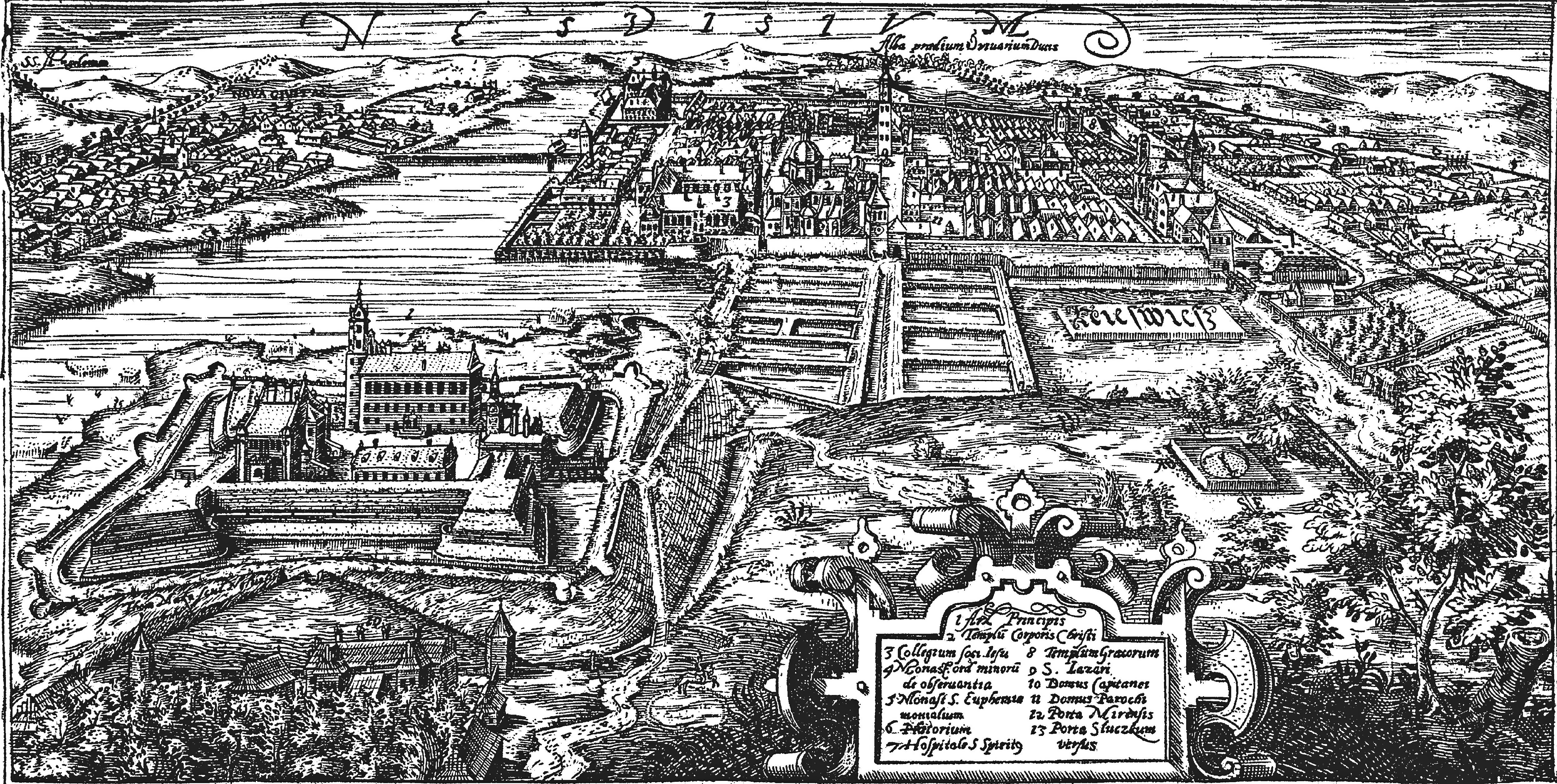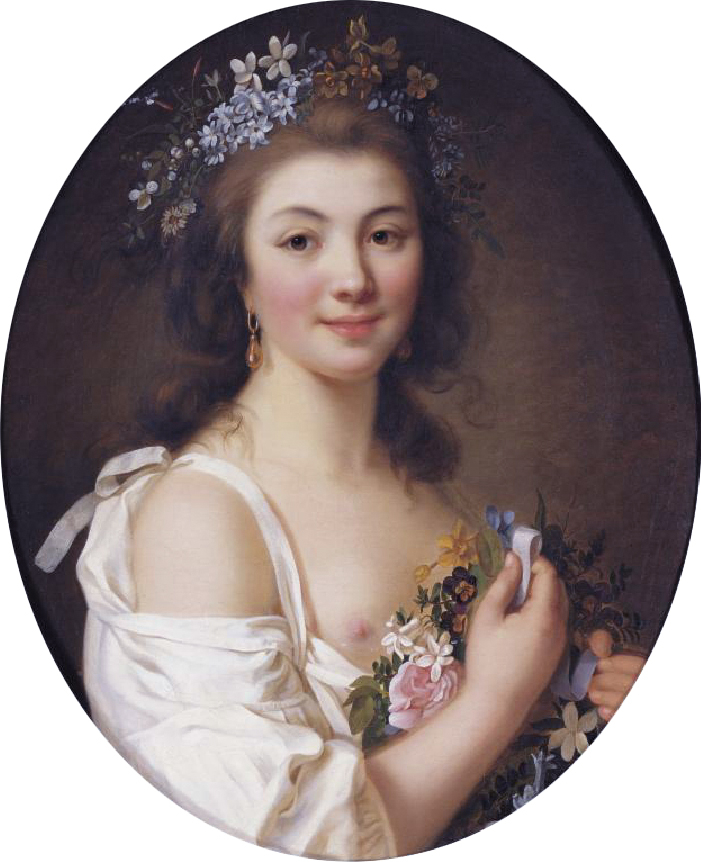|
Anna Olimpia Mostowska
Anna Olimpia Mostowska, née Radziwiłł (c. 1762, Nieśwież - 1810, Zasław), was a Polish writer. She published her first historical novel in 1807. Her name derives from her second husband, the Polish writer and statesman, Tadeusz Mostowski. Works * 1806 ''Moje rozrywki'' :: Volume I ''Strach w Zameczku''; ''Posąg i Salamandra'' (translated from Christoph Martin Wieland); :: Volume II ''Matylda i Daniło''; ''Cudowny szafir'' (translated from Stéphanie Félicité, comtesse de Genlis Caroline-Stéphanie-Félicité, Madame de Genlis (25 January 174631 December 1830) was a French writer of the late 18th and early 19th century, known for her novels and theories of children's education. She is now best remembered for her journal ...); :: Volume III ''Zamek Koniecpolskich''; ''Nie zawsze tak się czyni, jak się mówi''; * 1807 ''Astolda'' * 1809 ''Zabawki w spoczynku po trudach'' # ''Pokuta'' (translated from Genlis); # ''Historya filozoficzna Adyla''; # ''Sen wróżebny' ... [...More Info...] [...Related Items...] OR: [Wikipedia] [Google] [Baidu] |
Nieśwież
Nesvizh, Niasviž ( be, Нясві́ж ; lt, Nesvyžius; pl, Nieśwież; russian: Не́свиж; yi, ניעסוויז; la, Nesvisium) is a city in Belarus. It is the administrative centre of the Nyasvizh District (''rajon'') of Minsk Region and site of Niasviž Castle, a World Heritage Site. Its 2009 population is 14,300. History Nesvizh was first documented in 1223. It was part of the Grand Duchy of Lithuania until 1793, but the Grand Duchy was part of the Polish–Lithuanian Commonwealth since 1569. In the 15th century, while still a minor town, it belonged to the Kiszka family and later to the Radziwiłł family, and remained the family's seat until 1813. In 1561 or 1562 Maciej Kawęczyński founded the print works of the Polish Brethren. The first Belarusian language book printed in Latin script, a catechism by Symon Budny, was published in Nesvizh in 1562. The ''Nieśwież Bible'' ('' Biblia nieświeska''), one of the oldest Polish translations of the Bibl ... [...More Info...] [...Related Items...] OR: [Wikipedia] [Google] [Baidu] |
Zaslawye
Zaslawye or Zaslaŭje ( be, Засла́ўе, ; russian: Засла́вль; pl, Zasław; lt, Zaslavlis) is a historical town in the Minsk Region of Belarus, 20 kilometres northwest of Minsk. In 2009 its population was 14,400. History According to chronicles, Zaslawye was founded in 985 by Vladimir the Great. He sent his wife Rogneda to live in Zaslawye with their son Izyaslav of Polotsk, the founder of the princely house of Polatsk. The town is mentioned in historical writings as Izyaslavl, which led to the current name, Zaslawye. In the beginning of Middle Ages, the town was a centre of the Principality of Izyaslavl. In the 11th century, the town was heavily fortified. Much of the town's territory has been designated for archaeological preservation now. In the modern days, the town built its outdoor statue of Rogneda and Izyaslav. During the period of Reformation, the town was a nest for followers of Calvinism and Socinianism. The town became a part of the Minsk Govern ... [...More Info...] [...Related Items...] OR: [Wikipedia] [Google] [Baidu] |
Tadeusz Mostowski
Tadeusz Antoni Mostowski (19 October 1766, Warsaw - 6 December 1842, Paris) was a Polish writer, journalist, literary critic and politician. Biography He was the son of , a noted military commander. He was raised in an intellectual atmosphere and studied at the Collegium Nobilium. In 1780, he became an Assessor and was later elected a member of the Great Sejm. In 1790, he was a Podstoli for the Masovian Voivodeship and also became a Castellan in Raciąż, thereby gaining a place in the . He was a supporter of the Patriotic Party and helped create the Friends of the Constitution. In 1792, together with Julian Ursyn Niemcewicz and , he published the '. During the period of the Targowica Confederation he left Poland; eventually arriving in Paris, where he became a mediator in talks between Polish emigrants and French revolutionary authorities. After the defeat of the Girondists, he was imprisoned but soon released and allowed to return home. There, he found himself persecut ... [...More Info...] [...Related Items...] OR: [Wikipedia] [Google] [Baidu] |
Christoph Martin Wieland
Christoph Martin Wieland (; 5 September 1733 – 20 January 1813) was a German poet and writer. He is best-remembered for having written the first ''Bildungsroman'' (''Geschichte des Agathon''), as well as the epic ''Oberon'', which formed the basis for Carl Maria von Weber's opera of the same name. His thought was representative of the cosmopolitanism of the German Enlightenment, exemplified in his remark: "Only a true cosmopolitan can be a good citizen." Biography Christoph Martin Wieland was born in Oberholzheim (now part of Achstetten), half of which then belonged to the Free Imperial City of Biberach an der Riss and the other half to Gutenzell Abbey in the south-east of the modern-day state of Baden-Württemberg. His father, who was pastor in Oberholzheim and subsequently in Biberach, took great pains with his son's education. From the town school of Biberach he passed on at the age of twelve to the Kloster Berge '' gymnasium'', near Magdeburg. He was a precocious child, ... [...More Info...] [...Related Items...] OR: [Wikipedia] [Google] [Baidu] |
Stéphanie Félicité, Comtesse De Genlis
Caroline-Stéphanie-Félicité, Madame de Genlis (25 January 174631 December 1830) was a French writer of the late 18th and early 19th century, known for her novels and theories of children's education. She is now best remembered for her journals and the historical perspective they provide on her life and times. Life Caroline-Stéphanie-Félicité du Crest de Saint-Aubin was born on 25 April 1746 at Champcéry near Autun, in the Saône-et-Loire region. Her parents were Pierre César du Crest (1711-1763), later Marquis de Saint Aubin, and Marie Françoise Félicité Mauget de Mézières (1717-1790). Her father's debts forced them to sell their home in 1757 and move to Paris. She and her mother spent interludes at the estates of Charles Guillaume Le Normant d'Étiolles and Alexandre Le Riche de La Poupelinière, where she studied dancing from a ballet master of the Comédie-Française, singing by Ferdinando Pellegrini, and learned to play the harp. Later in Paris they survived o ... [...More Info...] [...Related Items...] OR: [Wikipedia] [Google] [Baidu] |
Apuleius
Apuleius (; also called Lucius Apuleius Madaurensis; c. 124 – after 170) was a Numidian Latin-language prose writer, Platonist philosopher and rhetorician. He lived in the Roman province of Numidia, in the Berber city of Madauros, modern-day M'Daourouch, Algeria. He studied Platonism in Athens, travelled to Italy, Asia Minor, and Egypt, and was an initiate in several cults or mysteries. The most famous incident in his life was when he was accused of using magic to gain the attentions (and fortune) of a wealthy widow. He declaimed and then distributed his own defense before the proconsul and a court of magistrates convened in Sabratha, near ancient Tripoli, Libya. This is known as the ''Apologia''. His most famous work is his bawdy picaresque novel the ''Metamorphoses'', otherwise known as ''The Golden Ass''. It is the only Latin novel that has survived in its entirety. It relates the adventures of its protagonist, Lucius, who experiments with magic and is accidentally t ... [...More Info...] [...Related Items...] OR: [Wikipedia] [Google] [Baidu] |
1760s Births
Year 176 ( CLXXVI) was a leap year starting on Sunday (link will display the full calendar) of the Julian calendar. At the time, it was known as the Year of the Consulship of Proculus and Aper (or, less frequently, year 929 ''Ab urbe condita''). The denomination 176 for this year has been used since the early medieval period, when the Anno Domini calendar era became the prevalent method in Europe for naming years. Events By place Roman Empire * November 27 – Emperor Marcus Aurelius grants his son Commodus the rank of ''Imperator'', and makes him Supreme Commander of the Roman legions. * December 23 – Marcus Aurelius and Commodus enter Rome after a campaign north of the Alps, and receive a triumph for their victories over the Germanic tribes. * The Equestrian Statue of Marcus Aurelius is made. It is now kept at Museo Capitolini in Rome (approximate date). Births * Fa Zheng, Chinese nobleman and adviser (d. 220) * Liu Bian, Chinese emperor of the Han Dynast ... [...More Info...] [...Related Items...] OR: [Wikipedia] [Google] [Baidu] |
Year Of Birth Uncertain
A year or annus is the orbital period of a planetary body, for example, the Earth, moving in its orbit around the Sun. Due to the Earth's axial tilt, the course of a year sees the passing of the seasons, marked by change in weather, the hours of daylight, and, consequently, vegetation and soil fertility. In temperate and subpolar regions around the planet, four seasons are generally recognized: spring, summer, autumn and winter. In tropical and subtropical regions, several geographical sectors do not present defined seasons; but in the seasonal tropics, the annual wet and dry seasons are recognized and tracked. A calendar year is an approximation of the number of days of the Earth's orbital period, as counted in a given calendar. The Gregorian calendar, or modern calendar, presents its calendar year to be either a common year of 365 days or a leap year of 366 days, as do the Julian calendars. For the Gregorian calendar, the average length of the calendar year (the ... [...More Info...] [...Related Items...] OR: [Wikipedia] [Google] [Baidu] |
1810 Deaths
Year 181 ( CLXXXI) was a common year starting on Sunday (link will display the full calendar) of the Julian calendar. At the time, it was known as the Year of the Consulship of Aurelius and Burrus (or, less frequently, year 934 ''Ab urbe condita''). The denomination 181 for this year has been used since the early medieval period, when the Anno Domini calendar era became the prevalent method in Europe for naming years. Events By place Roman Empire * Imperator Lucius Aurelius Commodus and Lucius Antistius Burrus become Roman Consuls. * The Antonine Wall is overrun by the Picts in Britannia (approximate date). Oceania * The volcano associated with Lake Taupō in New Zealand erupts, one of the largest on Earth in the last 5,000 years. The effects of this eruption are seen as far away as Rome and China. Births * April 2 – Xian of Han, Chinese emperor (d. 234) * Zhuge Liang, Chinese chancellor and regent (d. 234) Deaths * Aelius Aristides, Greek orator and w ... [...More Info...] [...Related Items...] OR: [Wikipedia] [Google] [Baidu] |
19th-century Polish Novelists
The 19th (nineteenth) century began on 1 January 1801 ( MDCCCI), and ended on 31 December 1900 ( MCM). The 19th century was the ninth century of the 2nd millennium. The 19th century was characterized by vast social upheaval. Slavery was abolished in much of Europe and the Americas. The First Industrial Revolution, though it began in the late 18th century, expanding beyond its British homeland for the first time during this century, particularly remaking the economies and societies of the Low Countries, the Rhineland, Northern Italy, and the Northeastern United States. A few decades later, the Second Industrial Revolution led to ever more massive urbanization and much higher levels of productivity, profit, and prosperity, a pattern that continued into the 20th century. The Islamic gunpowder empires fell into decline and European imperialism brought much of South Asia, Southeast Asia, and almost all of Africa under colonial rule. It was also marked by the collapse of the lar ... [...More Info...] [...Related Items...] OR: [Wikipedia] [Google] [Baidu] |





